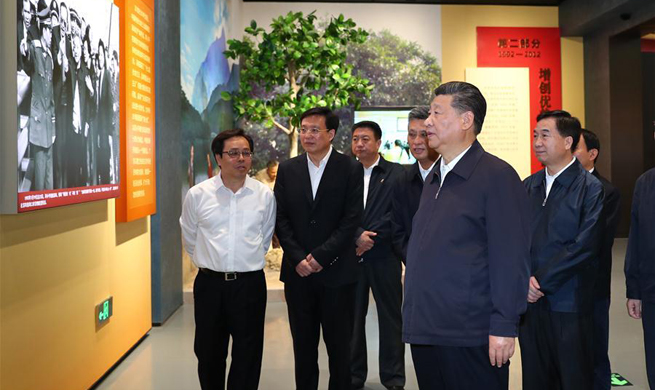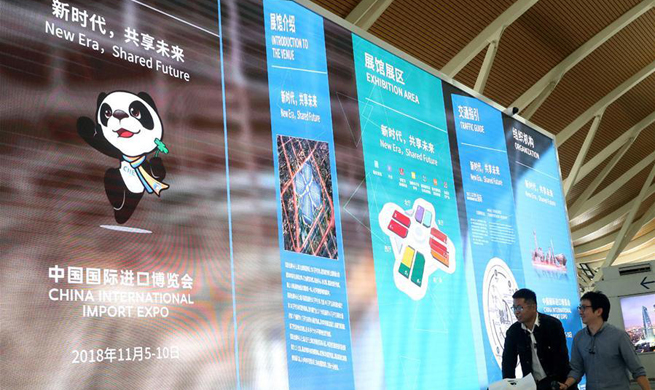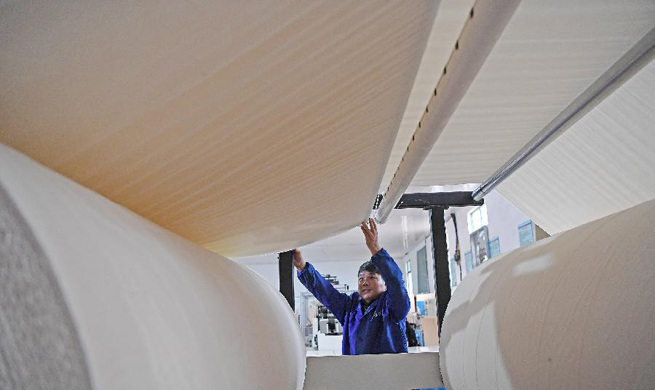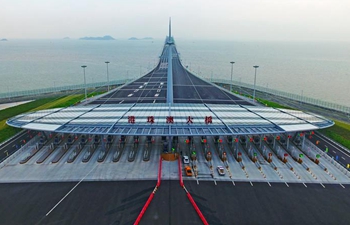WASHINGTON, Oct. 25 (Xinhua) -- The United States and China are highly interdependent in terms of trade, and should resolve current disputes with an attitude to achieve win-win results, former U.S. Trade Representative Michael Kantor told Xinhua in a recent interview.
Kantor, who served as the top U.S. trade official between 1993 and 1996, engaged in numerous trade talks with his Chinese counterparts, laying the groundwork for an agreement on China's accession to the World Trade Organization (WTO).
Kantor said he realized then that China was going to become the second largest economy in the world, and "it made no sense for China not to be in the WTO."
China has made enormous economic gains since joining the WTO, which benefited not only itself but also the United States and the entire world, Kantor said, adding that "the Chinese have adhered to almost everything we wanted China to do during that era."
Kantor said the WTO has enabled developing economies to lift tens of millions of people out of poverty, and that he was happy to learn that China is set to eliminate poverty across the country before 2021.
"That's good news. We're talking about human beings. We don't want human beings living in poverty," he said.
As a resident of Los Angeles on the U.S. West coast, Kantor said he is proud that California is the biggest trading state with China, and that the two sides share close ties in trade and climate change policies, among others.
Kantor said a Chinese company has the largest terminal in the port of Los Angeles, demonstrating the close trade relationship between the United States and China.
"They're an important company operating in the United States. They had hundreds and thousands of jobs here, not unlike a lot of Chinese companies, but I'm just saying and the same for many U.S. companies operating in China ... we are mutually dependent on each other and people have got to come to that realization," he said.
With the mass amount of bilateral trade, it's normal that both sides have different opinions, Kantor said, but it's vital that both sides manage those differences.
"When you have trade, you're going to have differences of opinion, but what has happened now we're turning those differences of opinion into crises. We don't need crisis," he said.
"There's nothing wrong with competition ... as long as we compete with the attitude that want everyone to be prosperous," he added.
Kantor voiced concern that some politicians are "making political points at home for our domestic audience" when dealing with international issues, saying such practice is short-sighted.
"Anyone can make points with their domestic audience by criticizing a foreign country, a foreign power. Of course that's easy. Anybody can do that and it's short-term gain, but it's long-term pain," he said.
Kantor said he would like for both countries to start talks quietly without heated rhetoric.
"The United States needs to quit threatening China. It's not helpful," he said. "I would hope we start talking quietly ... with less rhetoric, and more facts, and make progress."
Kantor strongly opposed tariffs that were slapped onto Chinese goods by Washington, saying even if Beijing did not retaliate, such measures would backfire.
"We're going to hurt U.S. jobs, the U.S. economy, we're going to hurt ourselves and the rest of the world literally. And the result is going to be less growth, less jobs, less income, more poverty," he said.
Kantor said both sides need to adhere to a win-win principle while negotiating terms.
"I do believe that you need to go into these discussions with the attitude that every trade discussion ought to be a win-win situation. You can't try to overwhelm the party on the other side of the table because that's not going to happen," he said.
"It doesn't have to be immediate. You can phase in certain changes. It doesn't have to happen overnight, but this is not just about economics. We also have to continue to build a relationship, strategically and politically," he said.
Kantor said when world economic progress and peace is at stake, "it is enormously important that China and the United States work out the differences."













